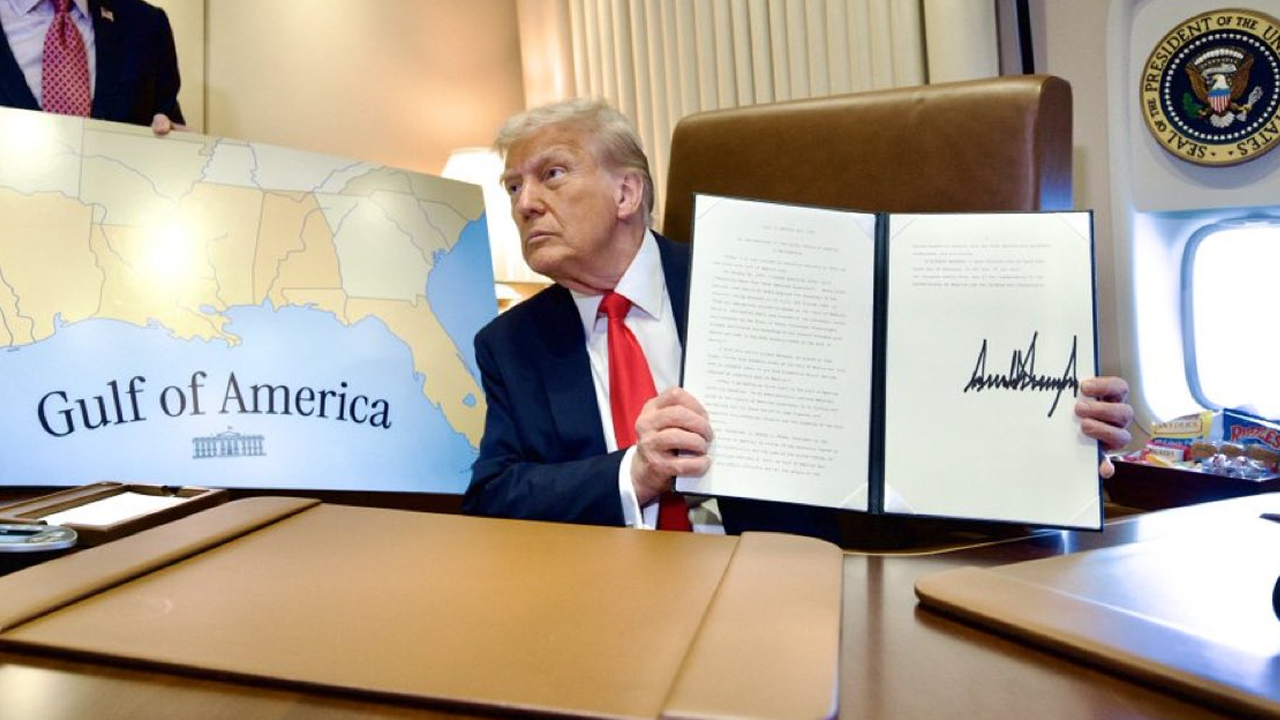Politics
Trump signs proclamation declaring February 9 ‘Gulf of America Day’ ahead of Super Bowl: ‘Another big win’

A Presidential Proclamation: Renaming the Gulf of Mexico
In a significant move, President Donald Trump signed a proclamation designating February 9th as "Gulf of America Day," marking the renaming of the Gulf of Mexico. This change, implemented while aboard Air Force One en route to Super Bowl LIX, underscores Trump’s commitment to asserting American identity. The renaming reflects a strategic shift in geographical terminology, aiming to realign cultural and nationalistic sentiments with the region’s historical importance to the U.S.
Trump’s Vision: Restoring American Pride
President Trump’s decision to rename the Gulf of Mexico is part of a broader vision to restore American pride. He emphasized the Gulf’s integral role in the nation’s growth and identity, suggesting the new name resonates more with American heritage. This move aligns with previous actions, such as renaming Mount Denali, highlighting Trump’s focus on revising historical and cultural symbols to reflect a more patriotic narrative.
Support and Celebration: Allies Applaud the Change
The renaming garnered support from allies, including former North Dakota Gov. Doug Burgum, who praised the move as a victory for Trump’s agenda. This backing illustrates the ideological alignment within Trump’s administration, emphasizing a return to patriotic values and a reinterpretation of national symbols.
Historical Context: The Gulf’s Redefinition
The Gulf of Mexico’s renaming to the Gulf of America is not merely a symbolic gesture but a redefinition of historical and cultural identity. While the change impacts official documents, its broader implications on education and public consciousness remain uncertain. This shift reflects a nuanced approach to reshaping national identity, invoking pride and a connection to American heritage.
Opposition and Implications: Controversy Ensues
Critics argue the renaming is politically motivated, dismissing it as a superficial change lacking historical basis. The move’s practical impact, such as on education and international relations, raises questions about its necessity and effect. This controversy highlights the polarized reactions to Trump’s policies, underscoring the debate over national identity and historical preservation.
A Broader Agenda: Trump’s Nationalist Strategy
Renaming the Gulf fits into Trump’s broader nationalist strategy, emphasizing American exceptionalism and cultural restoration. This approach, while divisive, aims to unify supporters under a shared identity. The renaming, alongside other actions, reflects a concerted effort to reshape America’s cultural landscape, leaving a lasting impact on national discourse and symbols.